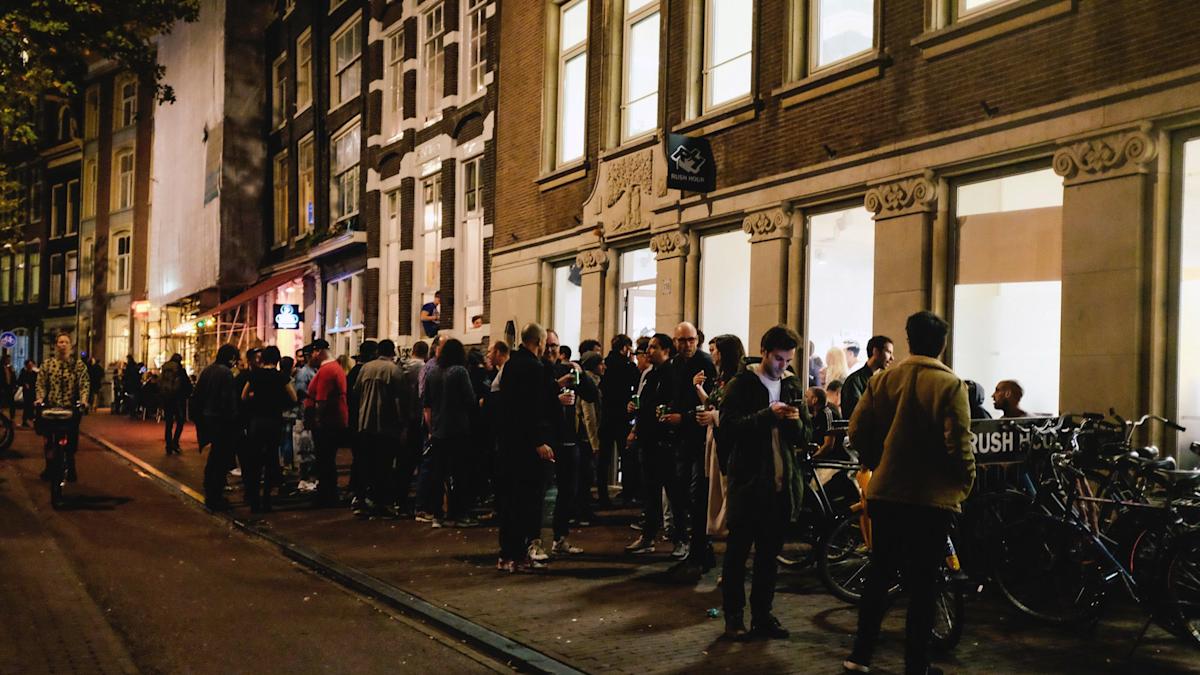
Refuge Worldwide and Roland host ADE radio pop-up at Rush Hour
We will be broadcasting from the beloved record store on October 24th.
Loading
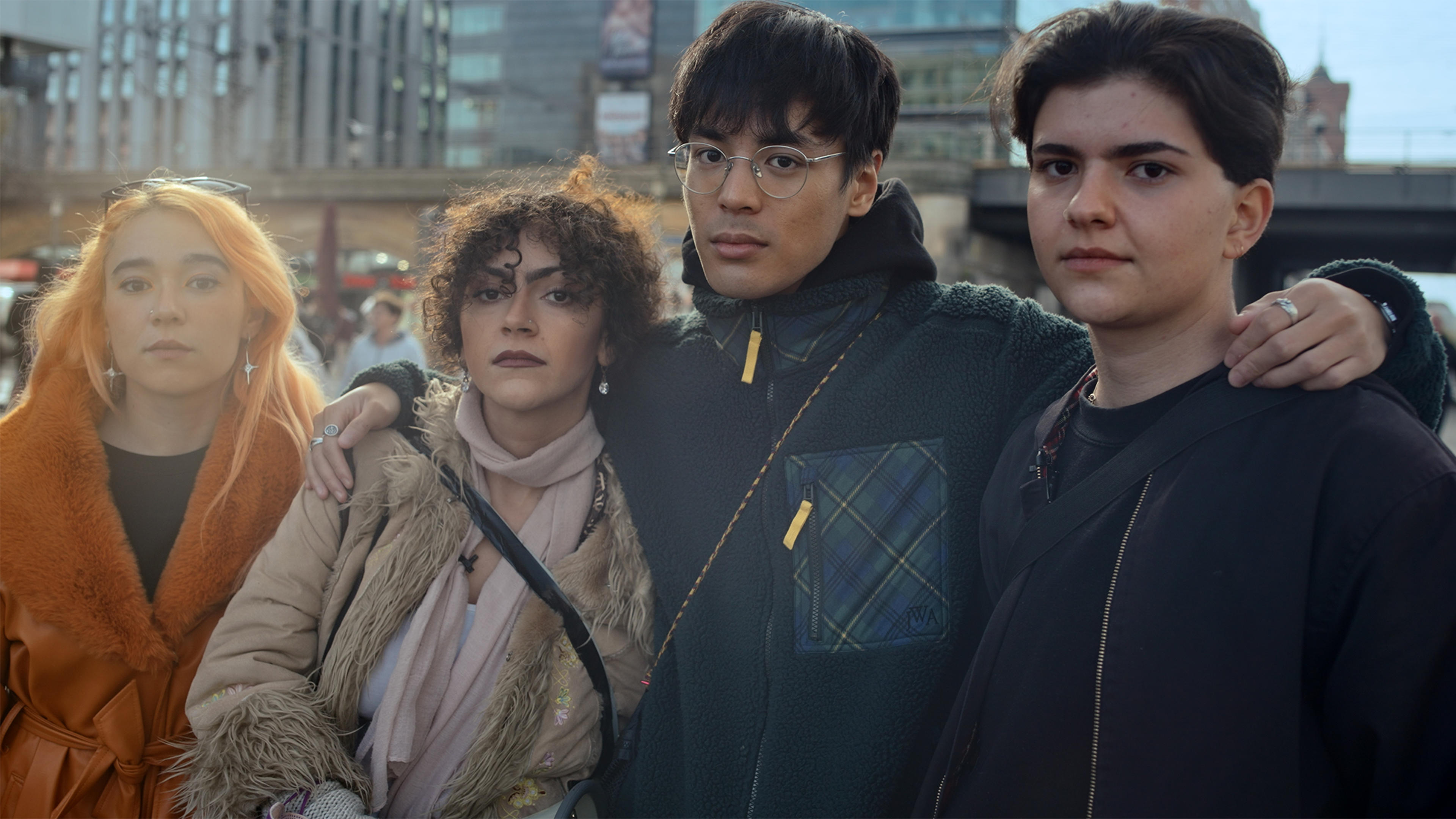
Her debut, NIEMALS ALLEIN, IMMER ZUSAMMEN, is out now.
By Caroline Whiteley
Joana Georgi is an emerging filmmaker and freelance journalist living in Berlin.
Her debut feature film, a documentary titled NIEMALS ALLEIN, IMMER ZUSAMMEN (Never alone, always together), follows the daily lives of five Berlin activists – Quang, Patricia, Simin, Zaza, and Feline – over the course of the year. All four are engaged in different political movements, fighting against racism, the climate crisis, the housing crisis, and advocating for better care work in the Berlin hospital system.
What unites them all in their struggle is the belief that the current capitalist system needs to be abolished in order to create a better society. The film depicts their daily life and political activities – taking care of their community, creating political art, and making waves on social media, and navigating an increasingly polarised place in time.
NIEMALS ALLEIN, IMMER ZUSAMMEN breaks down stereotypes about social movements and leftist political organisations in Berlin, showcasing that radical change is not only possible but necessary. The film premiered on 13 June and is currently streaming in cinemas across Berlin and in Germany. Watch the trailer here.
Caroline Whiteley spoke with Georgi about leftist filmmaking, the changing landscape of political activism in Germany, and the changes necessary for progressive movements to become more productive in achieving their goals.
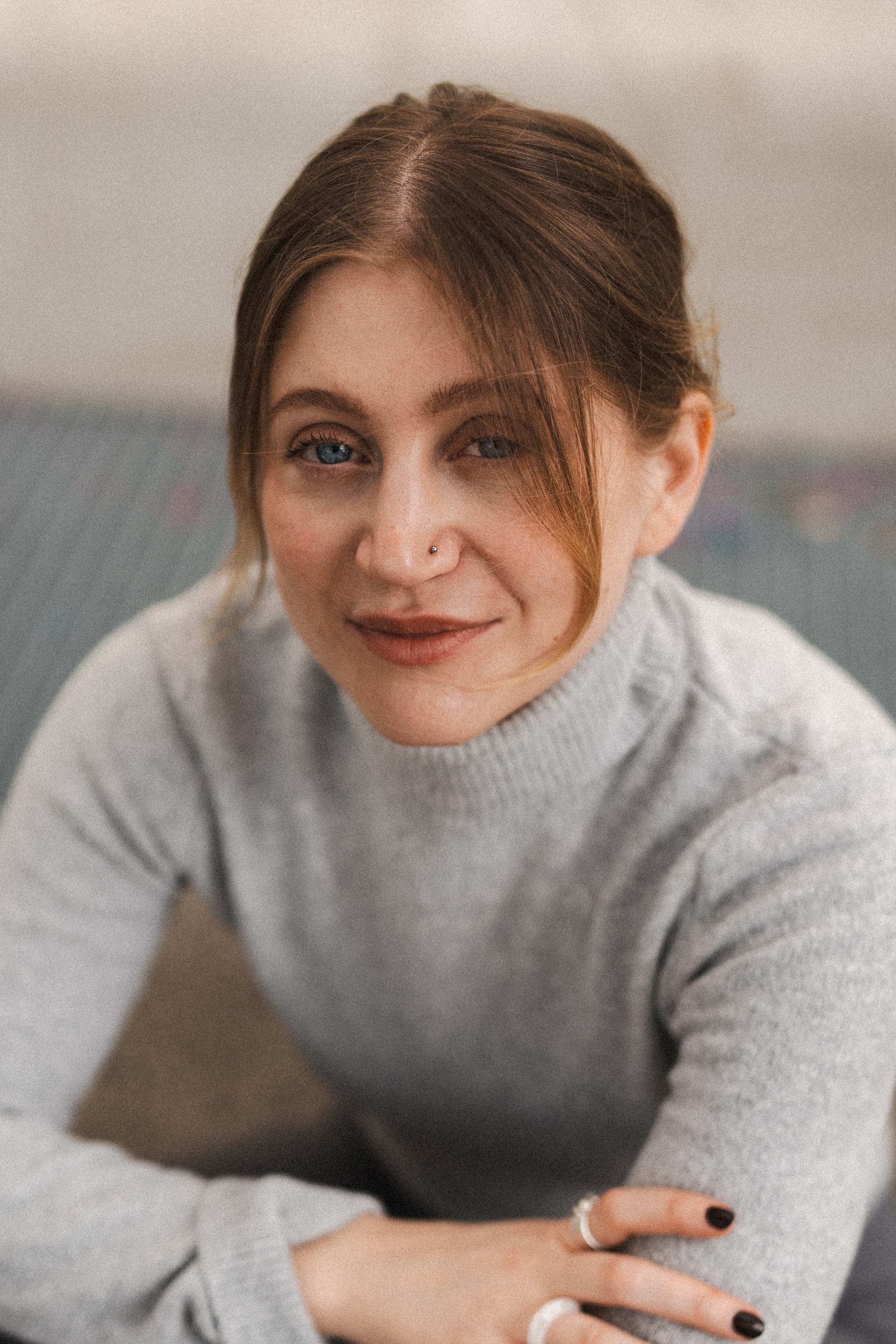
How do you feel right now? The film has already been in theatres for about a month.
We never anticipated receiving such overwhelming praise and support, and it has been gratifying. This film has been a labour of love for three years, often under unpredictable circumstances, and there were many moments where we doubted if we could continue.
Talking to people who watched the film has been beautiful. School kids and elderly viewers have all expressed their appreciation and newfound motivation for anti-capitalist struggles. Our goal for the film was to remind those who are already involved in political activism that they are not alone and to motivate those who are inactive to get involved into radical politics and stand up for themselves. This is the feedback we received from viewers.
You were just in Hamburg yesterday showing the film to school classes again. How was that for you?
While creating our film, we were under the impression that most young people leaned towards left-wing or environmentally friendly beliefs. However, this has drastically changed since then. In fact, I have discussed this with the organisers of a school showing where our film was presented to three classes. They were just as surprised by the apparent shift to right-leaning views among young people. Before the pandemic, topics like queer gender identities and climate change were of great interest to young individuals. However, in recent times, there has been a notable shift in attitudes.
Each year, public schools offer a special cinema program (SchulKinoWochen) that allows students to watch films at a discounted price. Currently, they are searching for movies with a progressive message to counteract conservative beliefs among the students.
During yesterday’s screening, five boys left midway through the film. We overheard them discussing outside, expressing anger towards the film’s criticism of law enforcement and making ignorant statements about people who can’t afford train tickets ending up in jail. This only confirmed my worries about young people holding conservative viewpoints. But thankfully, the post-film discussion sparked meaningful conversations and raised important questions that need to be addressed.
Three students who were initially quiet during the discussion later approached us to thank us for the film. I think our film motivates already-politicised students to get more involved and helps others understand structural issues, for example within the police, for the first time. This process may push individuals to think differently and become more engaged outside of school. Films have the power to inspire people to engage with important topics in a more sustainable way, rather than simply watching and moving on, like it often happens on social media.
Young people, or at least some, are drawn to the AfD [Alternative für Deutschland political party] because it is good at networking on social media and using the internet effectively. A film can be a good educational countermeasure.
The portrayal of radical left politics on a personal level, without a preachy tone or finger-wagging attitude, makes this film stand out. We wanted to focus on the individuals and tell their stories in order to connect with the audience more deeply. Our critiques of the capitalist system are not just presented forcefully. They emerge naturally from the protagonist’s own lived experiences. Many people have also told us that they were so happy to finally see a film with a leftist, critical point of view that doesn’t hold back and dares to name things openly, and even includes protagonists who explicitly call themselves communists, which is relatively rare in the German film landscape.
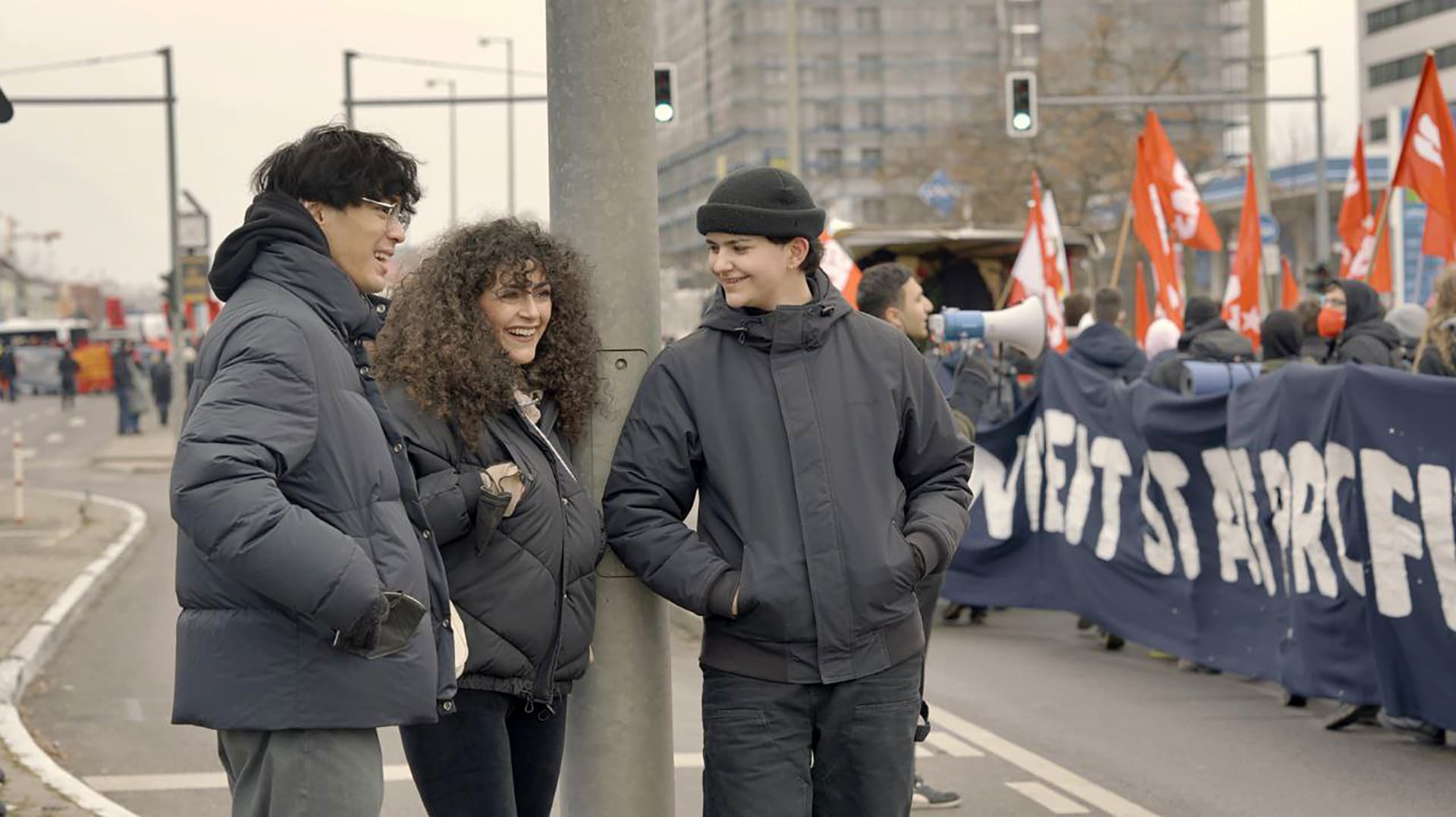
Why do you think that is?
The decline of leftist film structures is a result of neglect and lack of support for years. Although there are still many talented leftist filmmakers, they often struggle to secure funding and opportunities. The German film industry - like any other industry that focuses on profits over quality - tends to lean towards conservatism, which can encourage self-censorship among filmmakers. In order to avoid provoking audiences, terms like communism, revolution, and anti-capitalism may be avoided in favour of more neutral language such as “system criticism” or “alternative economic systems.” This can dilute the intended ideas and ultimately sacrifice honest political views for potential funding or approval.
I think it’s really important that young people who call themselves communists can say so and provoke discourse. Due to Germany’s in parts traumatic history of living in a socialist dictatorship, which is not typically viewed positively, individuals may refrain from identifying as communists. However, we have to examine and assess the successes and failures of actual socialist states, to learn from them for the future.
In a particular scene in the film, Simin acknowledges that she has gained valuable perspectives from those who criticise the authoritarianism of the GDR. However, she defines communism as originating from “communes”, which is based on the idea of communal management of shared property. This contradicts the values of capitalism, which are rooted in private ownership and wealth accumulation by a select few individuals.
Rather than promoting a green capitalist system, we support collective management of property and shared ownership of the means of production. While creating new terminology may have its advantages in certain situations, using established terms from the communist tradition can lead to more meaningful discussions and deeper engagement with our beliefs.
We are already seeing a watering down of radical positions from the leftist fraction in the current government.
Precisely. The Greens and the Left party (Die Linke) assumed government responsibilities and had to compromise on many leftist principles. They supported deportation and privatisation during the last decades, which go against their original beliefs. This kind of compromise undermines the seriousness of left-wing politics.
In my opinion, it’s more truthful to create a film that directly addresses radical politics rather than pretending to not be anti-capitalist. Because the reality is that many social movements and individuals who desire a different economic system actually do have ties to communism and Marxism. It’s important to listen and give them representation on screen. Unfortunately, communist ideas are often censored in creative works.
You were also censored in a very real way by the algorithm when you tried to promote the film, right?
That’s correct! During our filming process in Berlin, we captured the protagonists near the Marx and Engels monument. One photo of them climbing onto the statue was chosen for the film’s poster, as it depicted young, leftist, radical individuals and what unites them all. We never considered the potential issues this may cause on Instagram. However, when we started our campaign four weeks before the release date, we posted the poster as an ad and immediately encountered problems – the ad was banned as Instagram had marked it as “political content”.
As it turns out, Instagram banned us from using this particular image because they deemed it to be in violation of their guidelines against political content. This caught us off guard and we were unable to promote our film’s trailer for three weeks. To us, this is a clear infringement on our artistic freedom. It’s not even a campaign poster - it’s just a promotional visual for our film. After multiple attempts, our producer Irina Thiab was able to successfully appeal to the Facebook office in Germany and get our poster approved. These may seem like small issues, but they make you consider the consequences of including anything remotely political in your work. It’s almost as if there is an intentional effort to intimidate and censor activists into self-censorship. Leftist content is often suppressed on social media platforms, shadowbanned, etc. This becomes problematic when you consider that 80% of young people rely on social media for news. It’s no surprise then that there has been a rise in right-wing ideology among young people, because they are unable to access leftist content online. That’s my perspective, at least.
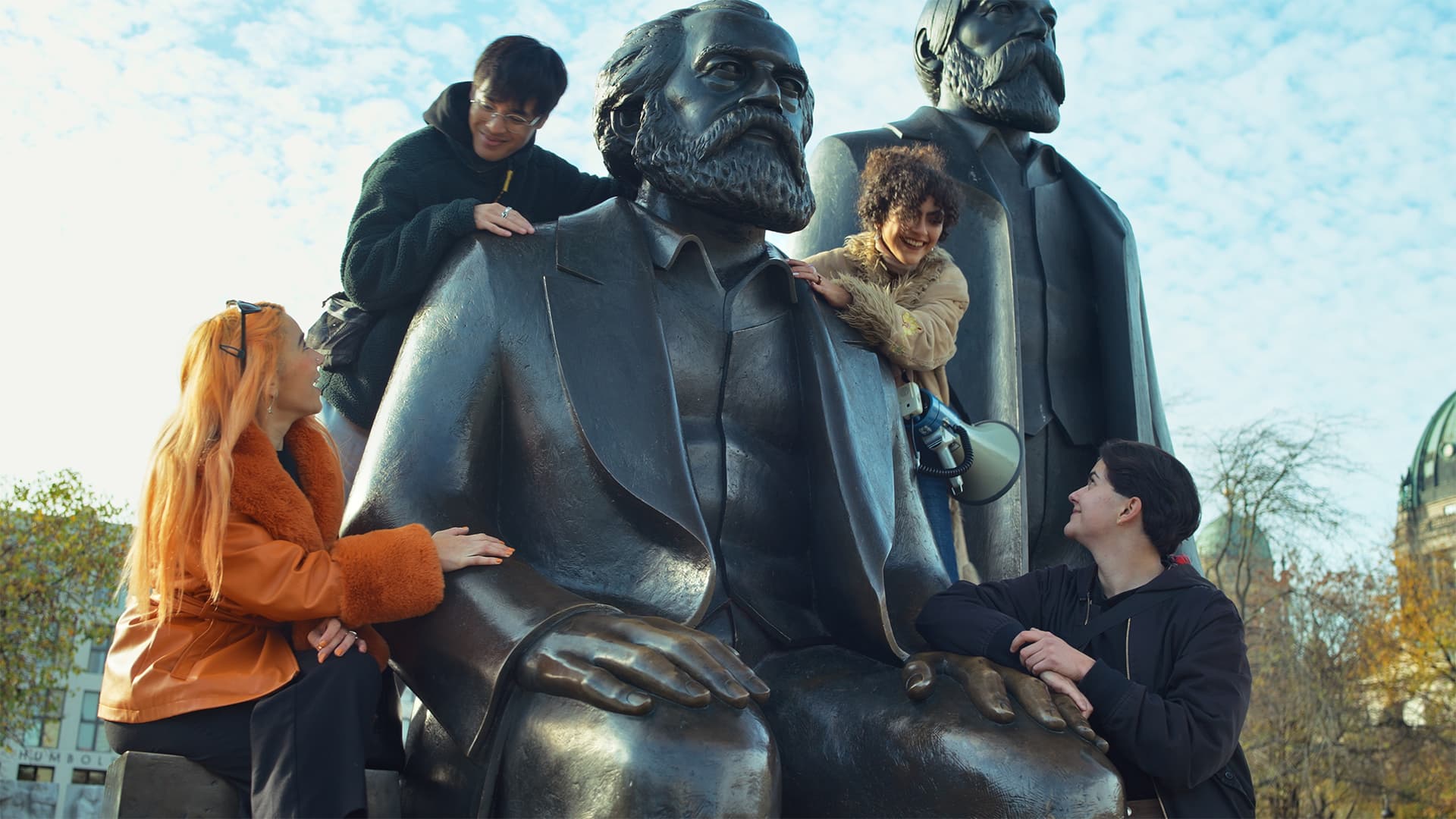
You began documenting the protagonists shortly before the start of the Ukraine war. [Almost a year] after you had wrapped the film shoot, Israel began its assault on Gaza following the 7 October Hamas attack. I can’t help but wonder how the film would have been received if it had included footage of activist movements focused on Palestinian liberation. Would it have presented even more challenges for releasing the film in Germany, given the country’s stance on Israel and Palestine?
Definitely. If we had filmed just a year later, finding help within the film industry would have been a huge challenge. The theatres would not have been as eager to show it either. The situation has highlighted the level of self-censorship and fear present in journalists reporting on this topic with objectivity and fairness.
The issue is incredibly charged. In one of the scenes, Simin talks about her visit to Palestine earlier that year [in 2022]. It is not a big scene but we decided to leave this scene in, as a small statement that we’re not afraid of touching on the subject. If we had depicted a protagonist in 2023 who actively supports the Palestinian movement and fights for a ceasefire, we would have faced challenges in getting our film into German cinemas. We know that the Palestinian liberation movement has caused rifts even among those on the left, leading to strained relationships and disagreements. However, it is crucial that we actively engage in discussions with one another in order to not become lethargic or drop out of politics. If we stay silent and disengage we will just harm our fights for freedom - no matter the topic. I hope this will improve in the future.
At the same time, I understand filmmakers who might be tempted to engage in self-censorship. Going into this film, I had concerns that choosing to tell a story about communists in my debut might hinder my future opportunities as a filmmaker. These are genuine concerns that must be confronted, but it’s important to also uphold journalistic integrity, to stay true to oneself and not obscure truths out of fear for one’s own career.
Interview by Caroline Whiteley.
Joana Georgi portrait photo by Clara Marnette.

We will be broadcasting from the beloved record store on October 24th.

Andiamo a Milano!
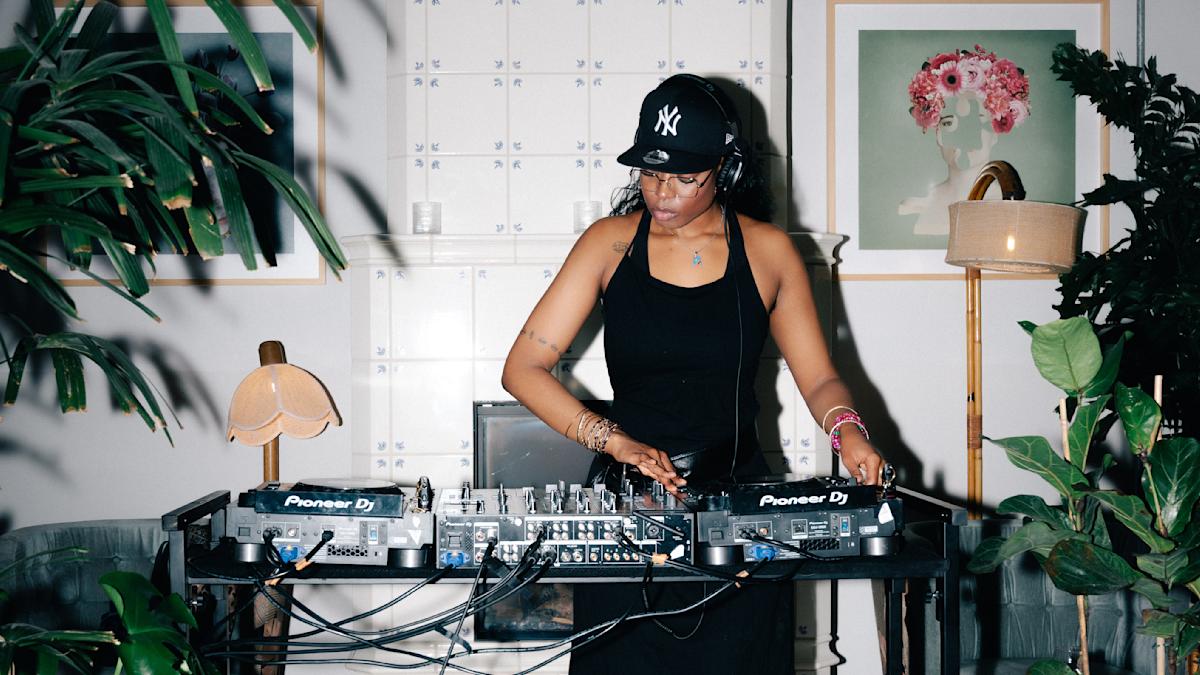
We are curating DJs for the Hoxton hotel lobby for ten weeks from October.